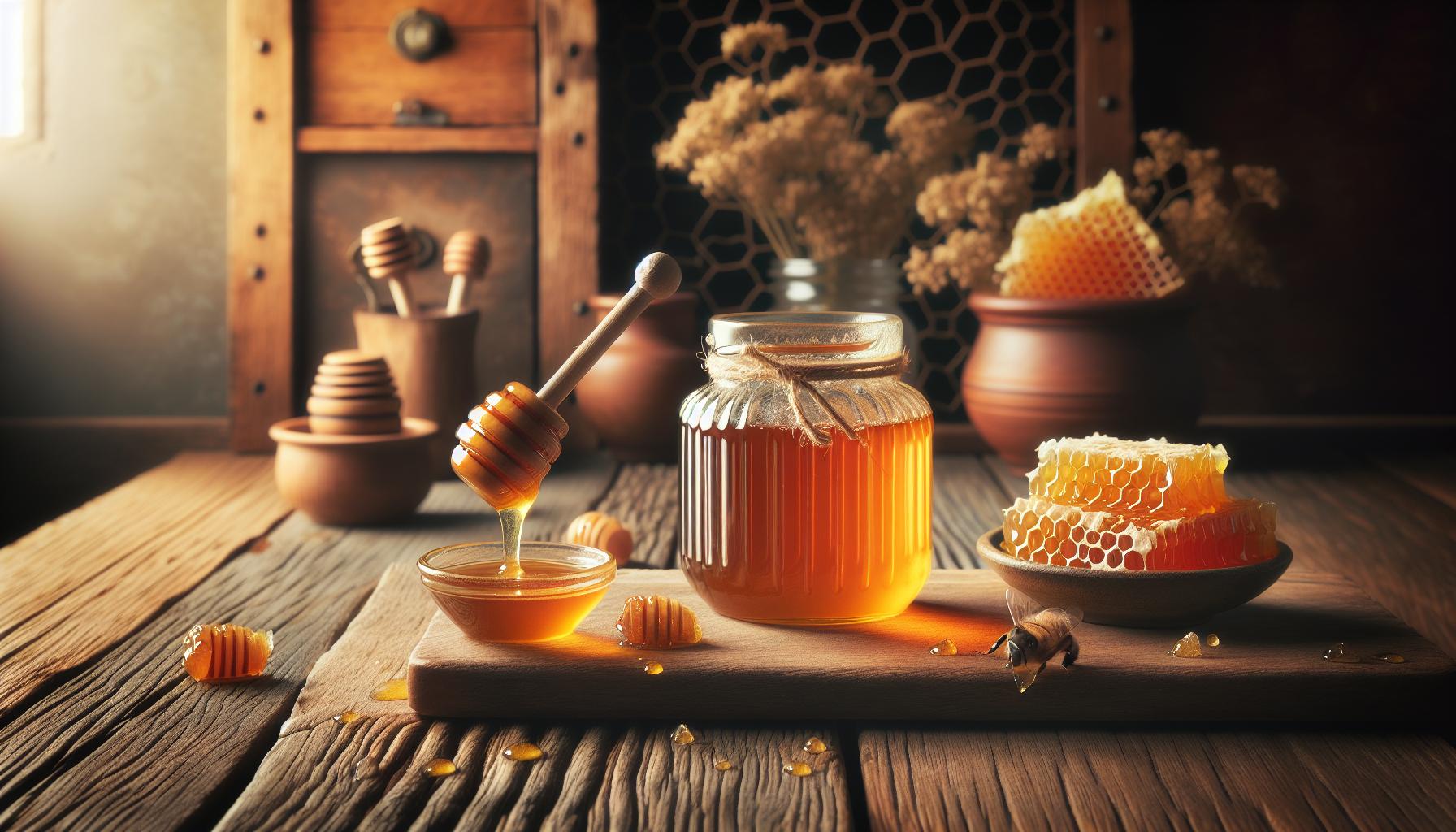Raw honey has long been cherished as more than just a natural sweetener. Its unprocessed, nutrient-rich composition offers a wealth of health benefits, making it a prized addition to many diets. Unlike processed honey, raw honey retains its natural enzymes, antioxidants, and nutrients, earning its reputation as a healthier alternative to refined sugars. Whether it's soothing a sore throat, promoting digestive health, or supporting immunity, raw honey has become a cornerstone of natural remedies.
This article dives deep into what makes raw honey unique, its potential benefits, risks, and the best practices for safe use.
What Is Raw Honey?
Raw honey is unfiltered, unheated, and unpasteurized honey extracted directly from the honeycomb. Beekeepers lightly strain it to remove impurities such as wax while preserving its nutrients and bioactive compounds.
Unlike regular honey, which undergoes pasteurization and filtration, raw honey retains pollen, antioxidants, and enzymes that contribute to its unique properties. It often appears cloudy due to its unprocessed nature and may crystallize over time, showcasing its authenticity. Types of raw honey include clover, wildflower, and the highly sought-after Manuka honey, each with distinct flavors and benefits.
Nutritional Profile of Raw Honey
Vitamins and Minerals
Raw honey contains essential vitamins like vitamin C and B-complex vitamins (riboflavin, niacin) that support energy metabolism and immune function. It also offers minerals like potassium, calcium, and magnesium, which aid in maintaining electrolyte balance, bone health, and muscle function. The exact nutrient content depends on the floral source of the honey.
Antioxidant Power
Rich in antioxidants like flavonoids and phenolic acids, raw honey helps neutralize free radicals, reducing oxidative stress. Darker varieties, such as buckwheat honey, typically have higher antioxidant content, enhancing their ability to protect against chronic illnesses like heart disease and inflammation.
Health Benefits of Raw Honey
1. Enhances Digestive Health
Raw honey's prebiotic properties encourage the growth of healthy gut bacteria, aiding digestion and improving nutrient absorption. Its antibacterial qualities also help combat harmful pathogens, such as Helicobacter pylori. When consumed in moderation before meals, it can alleviate acid reflux symptoms.
2. Supports Wound Healing
Topical application of raw honey accelerates wound healing by forming a natural antibacterial barrier. Compounds like hydrogen peroxide and methylglyoxal reduce infection risks and promote tissue regeneration, making it effective for burns, cuts, and ulcers. Manuka honey, in particular, is prized for its potency in treating chronic wounds.
3. Boosts Immunity
Packed with antioxidants and natural antimicrobials, raw honey helps strengthen the immune system. Its enzymatic production of hydrogen peroxide provides additional antibacterial defense, making it a useful remedy for colds and sore throats.
Potential Risks of Raw Honey
While raw honey boasts many benefits, it’s not without risks:
1. Risk of Botulism
Raw honey may contain Clostridium botulinum spores, posing a risk of botulism in infants under 12 months. Symptoms in infants include muscle weakness, constipation, and difficulty feeding. For healthy adults, the mature digestive system neutralizes these spores, minimizing risks.
2. Allergic Reactions
Raw honey can contain pollen and bee proteins, triggering allergic reactions in sensitive individuals. Symptoms may include itching, swelling, hives, or, in severe cases, anaphylaxis. People with pollen or bee allergies should consult a healthcare provider before consuming raw honey.
How to Use Raw Honey Safely
Proper Storage
To maintain its quality, store raw honey in a clean, airtight container at room temperature (64–75°F) and away from direct sunlight. Avoid refrigeration, as it accelerates crystallization. Use glass or food-grade plastic containers, as metal can interact with honey and affect its taste.
Recommended Usage
- For adults: Use raw honey as a natural sweetener in tea, yogurt, or smoothies. It can also be applied topically for minor wounds or burns.
- Caution for infants: Avoid giving raw honey to children under 12 months due to the risk of botulism.
- For allergy sufferers: Choose filtered honey or consult a doctor before consumption.
Conclusion
Raw honey is a nutrient-rich superfood with potential health benefits ranging from boosting immunity to improving digestion and supporting wound healing. Its unprocessed nature preserves valuable compounds, making it a healthier alternative to processed honey or sugar.
However, proper storage, mindful usage, and awareness of risks—like allergies or botulism in infants—are crucial for safe consumption. When used responsibly, raw honey can serve as both a versatile ingredient and a natural remedy for many everyday health concerns.
Frequently Asked Questions
1. What is raw honey, and how is it different from regular honey?
Raw honey is unfiltered and unpasteurized, preserving nutrients, enzymes, and pollen. Regular honey undergoes processing that strips it of these beneficial components.
2. What are the main health benefits of raw honey?
Raw honey supports immunity, digestion, and wound healing. Its antioxidants help fight free radicals, while its prebiotic properties promote gut health.
3. Can raw honey boost immunity?
Yes, raw honey’s antioxidants and antimicrobial properties strengthen the immune system and help the body combat seasonal illnesses.
4. Is raw honey safe for everyone?
No, raw honey is unsafe for infants under 12 months and may cause allergic reactions in individuals with pollen or bee-related allergies.
5. Does raw honey help with digestion?
Yes, its prebiotic properties foster healthy gut bacteria, improving digestion and nutrient absorption.



